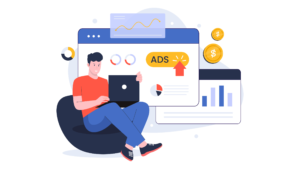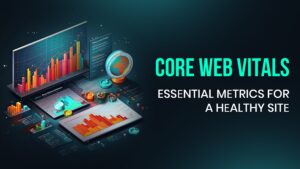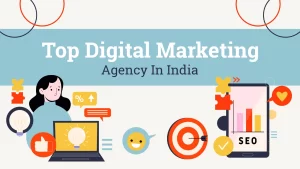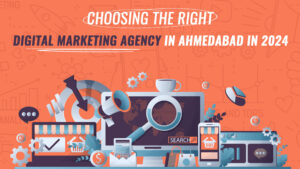What is Influencer Marketing?
Influencer Marketing is an advanced approach to advertising that involves collaborating with people who have a large internet following to introduce products, services, or messages to them. Influencers are people who have established a solid brand, trustworthiness, and a large following within an audience or specialization, frequently on social media sites like Facebook, Instagram, YouTube, and Blogs.
Influencer marketing’s main concept is to use the influencer’s status and connection with their audience to create honest and impactful promotional content. Influencer marketing makes use of the influencer’s capacity to connect and resonate with their followers in a more natural and relevant way than traditional forms of advertising, which can come across as forced or aggressively promotional. As a result, the marketing message is more powerful and appears to be coming from a reputable source, increasing its impact.
Influencer advertisements may be performed in a variety of ways, including through sponsored posts, product reviews, unboxing videos, how-to guides, and more. Brands build partnerships with influencers to integrate their products seamlessly without detracting from the natural feel of the influencer’s content and to match the influencer’s audience preferences with the brand’s offers.
The capacity of influencer marketing to leverage the impact of social proof and word-of-mouth recommendations in the digital era is key to its success. Influencers are essential for directing trends and influencing consumer behavior as customers seek authentic experiences and trust peer opinions. Brands are able to reach a wider audience and create a more engaged client base by taking advantage of the relationships of trust and connection that influencers have built with their following.
In simple terms, influencer marketing fills the gap between traditional marketing and the changing tastes of today’s tech-savvy customers. It acknowledges the shifting dynamics of consumer-brand interactions and makes use of influencers’ persuasive power to develop a more significant and effective promotional plan.
Advantages of Influencer Marketing:
- Authenticity and Credibility: Influencers are often seen as trusted figures within their niches, and their endorsements come across as genuine recommendations rather than overt advertising.
- Targeted Reach: Influencers have specific audiences that align with particular demographics or interests, allowing brands to precisely target their desired customer segments.
- Engagement and Interaction: Influencers foster strong relationships with their followers, leading to higher engagement rates and more meaningful interactions compared to traditional advertising methods.
- Content Diversity: Influencers create diverse and creative content that resonates with their followers, giving brands access to a range of content formats that can showcase their products or services in unique ways.
- Improved SEO and Online Presence: Collaborations with influencers can lead to increased mentions, backlinks, and online visibility, positively impacting a brand’s search engine rankings.
- Quick Results: Influencer campaigns can generate rapid results, especially when compared to traditional marketing efforts, due to the immediate exposure within an influencer’s established audience.
Disadvantages of Influencer Marketing:
- Costs: Partnering with high-profile influencers can be expensive, and the return on investment isn’t always guaranteed, particularly for smaller businesses with limited budgets.
- Authenticity Concerns: In some cases, influencers might promote products solely for financial gain, which can undermine authenticity and erode trust among their followers.
- Influencer Reputation: If an influencer’s reputation takes a hit, brands associated with them might face negative consequences by association.
- Measurement Challenges: Measuring the direct impact of influencer campaigns on sales and ROI can be complex, making it challenging to assess their true effectiveness.
- Saturation and Trust Issues: As influencer marketing grows, some audiences might feel overwhelmed by sponsored content, leading to decreased trust and effectiveness over time.
- Lack of Control: Brands have limited control over how an influencer presents their product or service, which can sometimes result in messaging that doesn’t align perfectly with brand values.
Concussion:
In conclusion, influencer marketing has redefined advertising by leveraging authenticity and reach. Target 8 Sales is a well-known digital marketing agency that provides services like SEO Optimization and Social Media Marketing Services. We understand the unique needs of each brand and tailor our solutions accordingly, ensuring effective and impactful campaigns. Ready to promote your business in the digital world? Get in touch with us at hello@target8sales.com and explore how we can elevate your brand in the digital realm.











